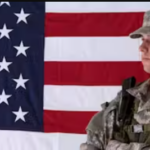By LISA CORNWELL
Associated Press
CINCINNATI (AP) _ Army veteran Tim Koester hopes proposed state legislation making it easier for veterans to get college credit for their military experience will help others avoid the problems he encountered.
The 2012 Xavier University graduate said he couldn’t get course credits for military experience until he transferred to the private Cincinnati school, which allowed him about 30 credits _ saving about a year of classes.
“You feel slighted when the work you did in the military doesn’t seem to count,” said Koester, who now works for a Cincinnati investment firm.
The bill passed overwhelmingly by the House and headed to the Senate would provide more uniform standards for the awarding of credit for military experience by public colleges and by state boards issuing occupational licenses and certifications. It is similar to other states’ laws that began to emerge following reports of high unemployment among the growing number of post 9/11 veterans. Those veterans sometimes have long delays in getting civilian jobs even with transferable military-acquired skills and training, according to the National Conference of State Legislatures.
The Bureau of Labor Statistics says the average unemployment rate nationally in 2013 for veterans who served since 2001 was 9 percent, compared to 7.2 percent for non-veterans. In Ohio, it was 11.8 percent, compared with 7.3 percent for non-veterans.
The number of veterans receiving education benefits through the U.S. Department of Veterans Affairs is growing _ from more than 421,000 in 2001 to over 945,000 in 2012.
“We need to provide our veterans with the support they need to re-enter the civilian workforce,” said state Rep. Mike Dovilla, the Ohio bill’s main sponsor.
The conference of state legislatures says 26 states have passed legislation directing colleges and universities to adopt policies for recognizing military-acquired skills and learning, and 45 have enacted legislation directing licensing boards to accept military experience in professions such as medicine and truck driving.
A new Indiana law requires colleges and universities to adopt policies for giving credit to veterans who pass equivalency exams or take courses in the service and provide incentives for veterans to pursue teaching degrees. Texas legislation led to that state’s College Credit for Heroes program, creating standards colleges can use to assess military training.
The Ohio Board of Regents’ survey last year of Ohio’s public universities and colleges found that college credit for military training, experience and course work wasn’t consistent across the state. The Governor’s Office of Workforce Transformation also noted inconsistency in awarding credit to veterans seeking occupational licenses and certifications.
“You’re driving a truck in Afghanistan, you come back to America, you should be certified to drive a truck,” Gov. John Kasich has said in pushing for the changes.
Among other things, the bill requires the regents’ chancellor to develop standards schools can use in granting credit. Colleges will be required to give veterans priority in class registration and cannot charge them for translating military experience into course credit. They also must designate an employee to help veterans with crediting and establish an appeals process for settling credit disputes.
Air Force veteran Jonathan Nickel, of Monroe, Michigan, is studying mechanical engineering technology at the University of Toledo. He hopes the legislation will enable him to bypass classes that overlap his military training.
“It helps when you don’t have to pay for classes you don’t need,” Nickel said. “There are situations the military puts you in that you get more out of than sitting in class.”
The bill also requires state boards and commissions to prioritize and expedite licensing and certification for veterans and their spouses. Some boards haven’t always identified applicants’ veteran status or military experience, said Tracy Intihar, the workforce transformation office’s director.
That made it harder for employers who want to hire veterans, said Gayle Agahi, the Cleveland Clinic’s director of strategic partnerships. She said requiring trained veterans to duplicate military-acquired experience slows down hiring.
Ohio colleges and licensing boards say the legislation should help their efforts to assist veterans.









